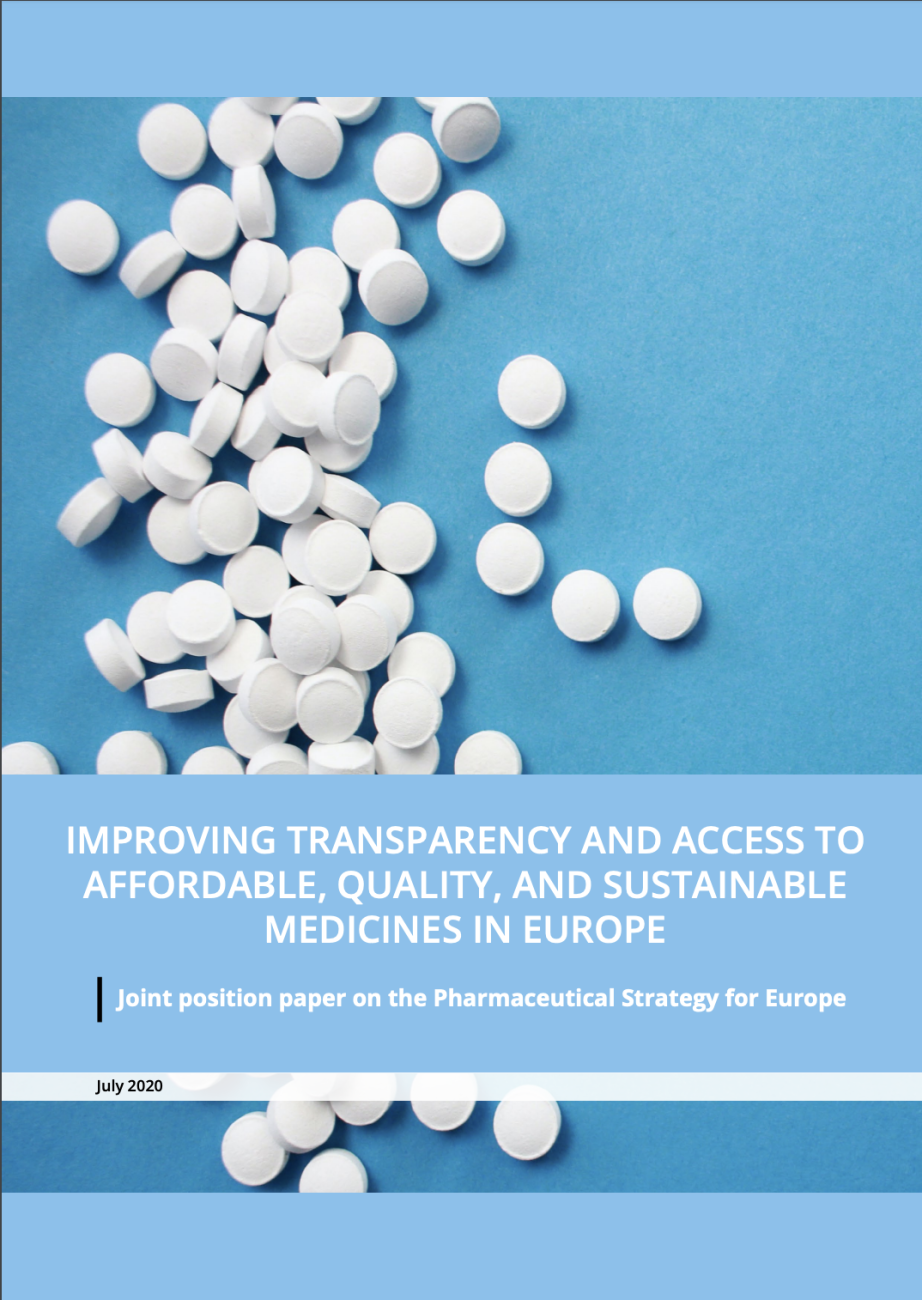The EU must ensure access to affordable and quality medicines in Europe whilst guaranteeing everyone’s right to a healthy and sustainable environment. Human medicine is not an ordinary commodity - public interest and public health should prevail as leading priorities when regulating the pharmaceutical sector.
Ahead of a stakeholders’ workshop with DG SANTE on 14-15 July, leading civil society organisations outline that it is imperative that the European Commission’s new Pharmaceutical Strategy for Europe looks beyond just profit and innovation and takes an holistic approach to safeguarding our health and the health of our environment.

They are together calling upon the European Commission to improve transparency throughout the pharmaceutical industry – research & innovation (R&I), financing, manufacturing, authorisation, and environmental risk.
The eight organisations maintain that the challenges of promoting a strong pharmaceutical sector in Europe will not be solved by tax incentives and subsidies alone.
To truly achieve the EU’s ambitions to tackle environmental and industrial challenges the European Commission should rather consider key principles for a responsible and transparent pharmaceutical sector, and how such principles should be applied.
In a joint position paper, the group emphasises that Europe needs a clean and fair pharmaceutical sector, which operates without harming human rights nor the environment. Providing recommendations, the paper clearly outlines actions needed in four key areas:
1 - Access to affordable and quality medicines
- There is no value in an unused medicine due to unaffordability; access to efficient, safe, and affordable medicines should be high on the EU agenda in the pursuit of equitable and sustainable healthcare.
2 - Shortages of medicines
- Medicine shortages are a growing systemic problem with diverse root causes. The COVID-19 pandemic exacerbated this issue with extraordinary trade restrictions. Antibiotic shortages are of particular concern amidst the threat of growing antibiotic resistance.
3 - Research and innovation of medicines
- R&I priorities must be driven by the public interest, and not just by the commercial interests of the private sector. The medium to long term focus should be on the principles of de-linkage and ensuring a fair return on public investment, guaranteeing that products are affordable and subject to public health-driven stewardship and conservation efforts.
4 - Environmental and human rights risks
- Both legislative and non-legislative measures are needed to regulate environmental risks in the transition to a toxic-free environment under the European Green Deal and the new Industrial Strategy for Europe. These measures should encourage environmental due diligence in the pharmaceutical sector, promoting responsible and transparent production, procurement, consumption, and disposal practices.
Organisations representing the healthcare sector and workers, public health interests including AMR, and water systems as well as European and national human and environmental rights organisations co-authored the position paper (attached) and collaborated on a series of recommendations to be included in the European Commission’s Pharmaceutical Strategy for Europe.
Signatories
- Changing Markets Foundation
- European Alliance for Responsible R&D and Affordable Medicines
- European Public Health Alliance (EPHA)
- Health Care Without Harm (HCWH) Europe
- ReAct - Action on Antibiotic Resistance Europe
- Stockholm International Water Institute (SIWI)
- Swedwatch
- Wemos
Contacts
General enquiries: Lloyd Evans, Press & Communications Manager - HCWH Europe lloyd.evans@hcwh.org
For policy questions on:
Access to affordable and quality medicines, please contact:
- Yannis Natsis, Policy Manager Universal Access and Affordable Medicines - EPHA yannis@epha.org
Shortages of medicines, please contact:
- Yannis Natsis, Policy Manager Universal Access and Affordable Medicines - EPHA yannis@epha.org
- Helle Aagaard, Deputy Director - ReAct aagaard@medsci.uu.se
Research and innovation of medicines, please contact:
- Viviana Galli, Coordinator, European Alliance for Responsible R&D and Affordable Medicines, viviana@medicinesalliance.eu
- Helle Aagaard, Deputy Director - ReAct aagaard@medsci.uu.se
Environmental and human rights risks, please contact:
- Jean-Yves Stenuick, Pharmaceuticals Policy & Projects Officer - HCWH Europe jean-yves.stenuick@hcwh.org
- Yayoi Lagerqvist, Researcher - Swedwatch yayoi@swedwatch.org